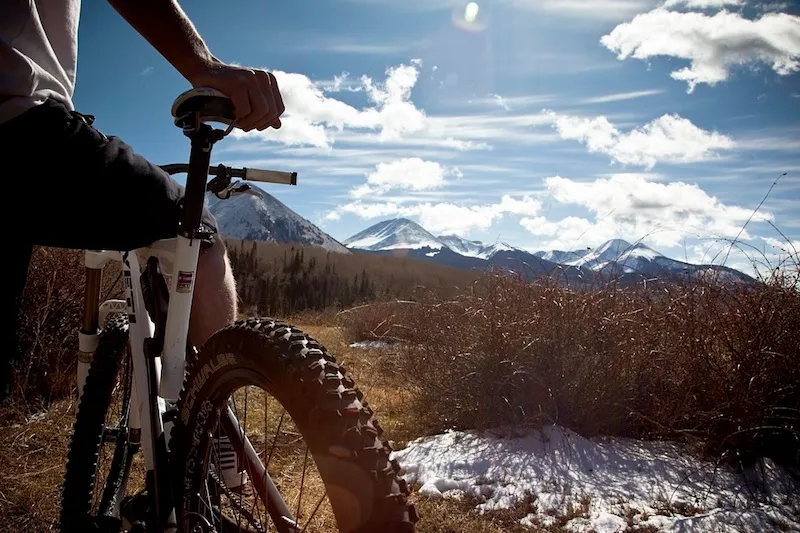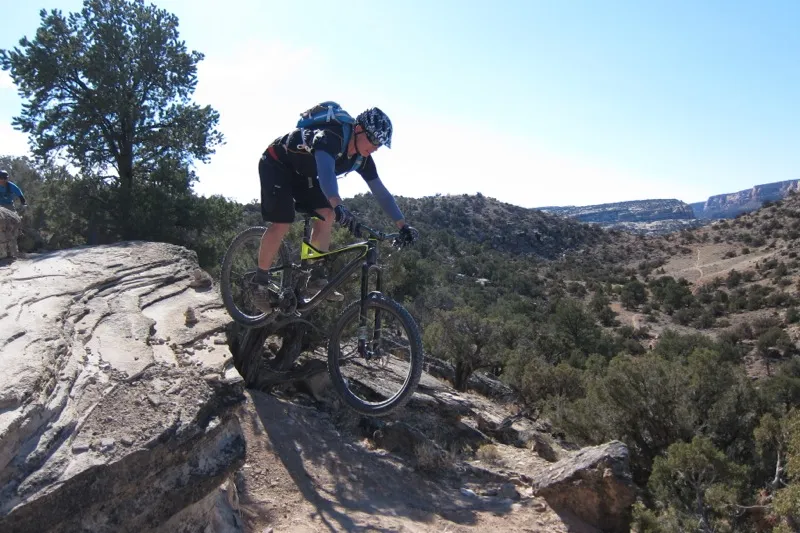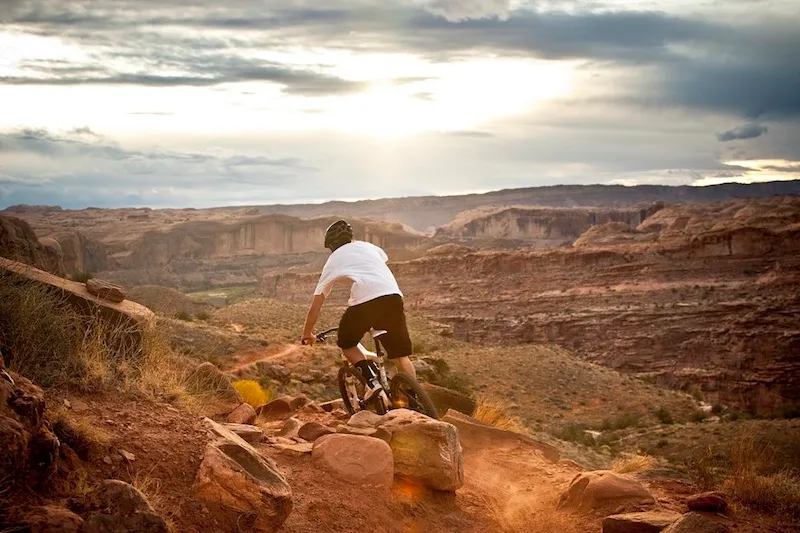2012 marks the arrival of America’s Enduro scene. This week Yeti Cycles and subsidiary Bigfoot Productions have announced a race series called The Big Mountain Enduro Series, squarely aimed at all-mountain riders. The series will be anchored by an event with the clout of those established in Europe: The Whole Enchilada Enduro in Moab, UT.
The Whole Enchilada is slated for 29-30 September. It will be preceded by a race from the Continental Divide Trail to the Steamboat ski area in Steamboat Springs, Colorado (17-18 August) and a race over Kennebec Pass in Durango, Colorado (1-2 September), the latter is still pending Forest Service approval.
The Whole Enchilada will have a field cap of 150 participants due to Forest Service and BLM permit restrictions. The Durango and Steamboat events are set to host 200 riders. Each course will be roughly 30 miles long and best handled by a trail or all-mountain style bike. Entry fees are steep — US$150 for the Whole Enchilada Enduro — but includes: post race meal/party, socks, t-shirt, sweatshirt, and day-of-race shuttle.
The races will be backcountry experiences, according to Bigfoot, and more in-line with the events that set the stage for American enduro racing, namely the Downieville Classic.
“The whole premise of it [the Big Mountain Enduro Series] is enduro racing on raw backcountry trails,” Sarah Rawley, Yeti’s events and marketing manager told BikeRadar. “Finally, enduro racing is coming about in the US a bit more and we’ve had some great events — the Winter Park enduro was super well received last year, but that was at a ski resort with multiple Super D runs — where as this takes a big epic ride that people plan [vacations around] to ride the Whole Enchilada; so to get the best pros in the enduro category racing on it — we’re super excited.”

The Whole Enchilada starts in Moab's high mountains and descends all the way to the Colorado River
The Whole Enchilada: all-mountain racing in mountain biking’s mecca
The Whole Enchilada is an epic ride — and one that should be on every mountain biker’s bucket list — it’s 30 miles with 7,000ft of descending comprising the Burro Pass, Hazard County, UPS, LPS and Porcupine Rim trails, thought the final section of technical singletrack, which descends to the bank of the Colorado River has been left out of the race’s permit.
“The reason that isn’t includes is because it’s what they call a WSA, or Wilderness Study Area,” said Keith Darner, race director for the Big Mountain Enduro Series race. “And you can’t have a competitive event through there. So we don’t get that last 1.8- or 2-miles, whatever it is.”
To make up for it, they’ve added a climb — Geyser Pass — to the start of the race for two purposes: to determine start order and give the pack a chance to sort itself between those going for the win, and those racing for the experience. “We’re starting at Geyser Pass in heats, depending on how registration goes,” said Darner. “Racers will ride from Geyser Pass, which is a dirt road, up to Burro Pass; that section will not be timed, however, the order in which you arrive at Burro Pass is the order in which you start.”
From there the race takes on an individual time trial start format; Darner estimates a 1min start interval.
Bigfoot list it as one of North America’s top five rides; and possibly a top 10 in the world — and we’d have a hard time arguing against the claim. And guidebooks tell riders to reserve 4- to 6hrs to cover the route. The pro winner will do it in less than 1.5hrs, according to local benchmarks. “It could be under that, or maybe a little longer,” said Kyle Mears, owner/operator of Acme Bike Shuttle in Moab, UT.

Kyle Mears of Acme Bike Shuttle in Moab, UT plans to keep the fast guys honest, his advantage: local knowledge
Riding the ‘Whole Enchilada’ is an accomplishment, but once riders race it, the experience becomes part of their riding persona, their ‘bar speak’ if you will — and instant ‘dirt cred.’ And winning it will cast a rider into the annals of mountain bike lore.
“This is the best example [in Moab] of a trail that would test [an all-mountain rider],” said Mears. “A cross-country guy could win it on a 29er; you could win it on a 6in bike with baggy shorts. It evens it all out; there’s enough climbing, enough flats, enough downhill, and a certain amount of good luck that has to happen just to make it down in one piece.”
And the winner will have truly triumphed, since there will be massive advantage with regard to local knowledge. The race will pit that knowledge against the flat-out speed and endurance of visitors. “Especially when you get down to porcupine rim, there are so many different options in terms of lines to take,” said Rawley. “We’re not going to tape it off. It will pit those who know that they’re the best against those that know that they’re the best on that course.”

